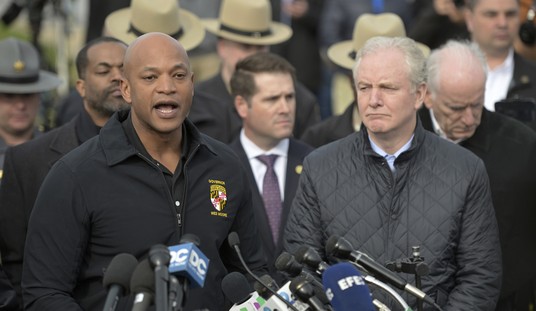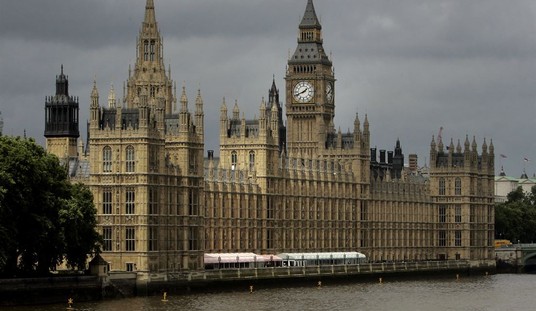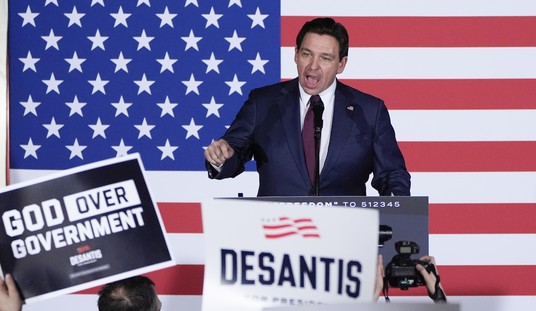The team here has had plenty of great coverage since the Hobby Lobby decision came down, but there are still elements of not only the court case, but the highly vocal opposition to it which leave me puzzled. There has been plenty of analysis regarding the religious freedom aspect of the case, particularly from Ed, and that is certainly an important facet of the discussion. But I find myself even more perplexed by the arguments I’ve been seeing regarding the nature of personhood vis-à-vis corporations and how they shouldn’t be eligible for the various assurances found in the bill of rights.
One sterling example of this curious battle cry may be found in a piece from Rick Ungar at Forbes, under a title which includes the 24 Point, breathless phrase, Founding Fathers Spinning in their Graves.
However, no matter how the 5-4 majority of Supreme Court Justices wish to parse it, the Court has, this very day, destroyed the true nature of the corporate entity—a legal fiction created by government with no capacity to possess feelings, beliefs, emotions, etc. while existing solely as a piece of paper filed away in a drawer in the Secretary of State’s office in each of our 50 states.
If you doubt that this is the reality of what a corporation was intended to be versus how today’s Supreme Court decision—coupled with their Citizens United ruling — has “morphed” the nature of an American corporation, I strongly suggest you take a look at the constraints on corporations in the time of the Founders of this nation and how the Founders themselves felt about the corporate entity.
It was the “Founding Fathers” part of the article which really caught my attention, as I had no idea that G. Washington and his various associates were so bullish on business. But if you go on to read the editorial, the author proceeds to cite numerous instances where Queen Elizabeth I and her various family successors stomped on the rights of business. (Wait… didn’t we actually fight a war to abandon those crown wearing despots?) Then, after ten paragraphs of talking about the attitude of the English Monarchy toward corporations interspersed with seeming non-sequiturs mentioning the Founding Fathers, in a failed attempt to conflate the royals with America’s actual founders, he offers this:
While we know that the Founders had contempt for these corporate entities and the corruption they had produced in England’s Parliament, it appears to have never occurred to them to directly address corporations when they wrote the Constitution.
Well, okay then.
But to my original point, when did we see people – especially those in the media – blandly accepting and asserting that corporations aren’t people? Ungar himself puts forward the claim that corporations are, “a legal fiction created by government with no capacity to possess feelings, beliefs, emotions, etc. while existing solely as a piece of paper filed away in a drawer…”
Is a piece of paper capable of conducting interviews and hiring workers? Can it invent and design new things, hammer out a way to manufacture them and appeal to the mass market to buy them? Can it wrestle with the tough decisions about benefits for employees or how and when those workers will no longer have jobs if the business suffers? No, it can’t. All of those things are the actions of actual human beings… specifically the ones who start or run the business in question. And those people all have values and opinions of their own.
In the era of my father and my grandfather, businesses owned by a single person, a few partners or multiple generations of families were even more prevalent than now. And even today nearly a third of all businesses with a value of more than $1M are owned in the majority by similar small groups. And those businesses most certainly reflected the values of those people who created and operated them. Just like today, those people all enjoyed the full slate of rights enjoyed by other citizens.
So why does it strike so many people as beyond the realm of credibility that these corporate owners would have rights, including freedoms of religion, speech and all the rest? It’s possible, I suppose, that some of us have developed such an inherent mentality of entitlement that we assume that we are owed a job, and once gaining employment, that we should be able to dictate how the “faceless piece of paper in the drawer” treats us without concern for the sensibilities of those who filed the paper originally.
But that really doesn’t make sense. It’s yet another example why these various and sundry federal mandates, handed down from on high to the segment of the nation who didn’t build that simply fly in the face of what we all expect as our hope for and share of the American dream. A corporation may be a piece of paper, but it’s only a de facto invitation to business leaders to pay taxes. And the business leaders in that equation are most certainly people.








Join the conversation as a VIP Member